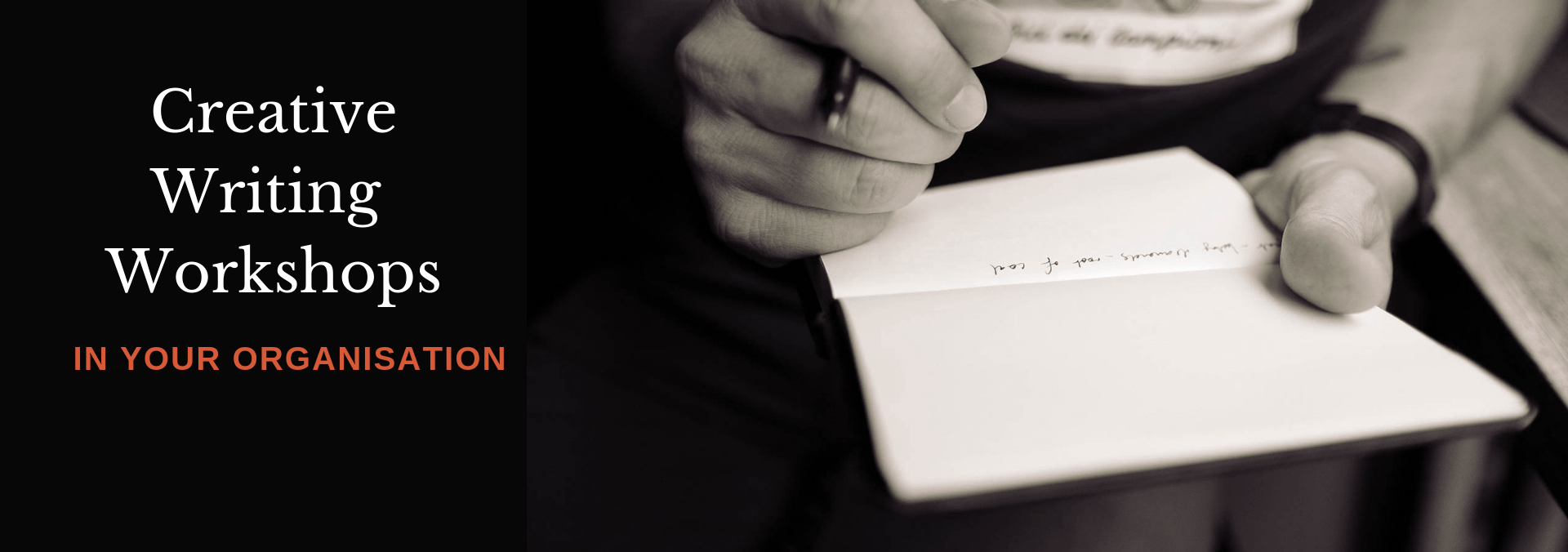Poetry Changes Lives
Poetry, History and Thoughts for Daily Improvement
Workshops
Bringing creativity into people’s lives
Christopher Burn’s creative writing workshops help people express complex emotions and gain thought clarity. Chris talks and runs workshops on creative writing at:
- Literary Festivals
- Conferences
- Schools
- Hospitals
- Book Clubs
Poetry for Professional Development
In the twenty-first century, a re-think is happening in education and in business. It is becoming clear that old ideas won’t suffice any longer. Why prioritise learning algebra or geographic facts, or business statistics, when a computer can give us the answers so much faster?
Forward thinkers are instead placing value on different attributes – creativity, problem solving, self-expression, empathy and inspiration. In that context, creative writing of any kind, especially poetry, scores highly.
Writing in The Harvard Business Review in 2012, education and leadership writer John Coleman said: “To those open to it, reading and writing poetry can be a valuable component of leadership development.” (The Benefits of Poetry for Professionals, John Coleman, November 27, 2012.)
Influential US businessman and owner of Newsweek magazine Sidney Harman once told The New York Times:
I used to tell my senior staff to get me poets as managers. Poets are our original systems thinkers. They look at our most complex environments and they reduce the complexity to something they begin to understand.
Andrew Simmons, author and teacher writing in The Atlantic about the importance of teaching poetry at school says: “Poetry enables teachers to teach their students how to write, read, and understand any text. Poetry can give students a healthy outlet for surging emotions. Reading original poetry aloud in class can foster trust and empathy in the classroom community, while also emphasizing speaking and listening skills that are often neglected in high school literature classes. Students who don’t like writing essays may like poetry, with its dearth of fixed rules and its kinship with rap. For these students, poetry can become a gateway to other forms of writing. It can help teach skills that come in handy with other kinds of writing—like precise, economical diction, for example. When Carl Sandburg writes, “The fog comes/on little cat feet,” in just six words, he endows a natural phenomenon with character, a pace, and a spirit. All forms of writing benefit from the powerful and concise phrases found in poems.” (Why Teaching Poetry Is So Important”, Andrew Simmons, The Atlantic, April 2014.)
Poetry as Therapy
As well as being a catalyst for developing inspirational and creative professionals, creative writing can be a powerful therapeutic tool in healthcare practice.
“Words are the physicians of the mind diseased” (Aeschylus BC 480)
The Ancient Greeks knew it: people have the power to change the way they’re feeling and writing poetry can help them to do so. When someone writes a poem, they are engaging different parts of the brain than when they take out a mobile phone to take a photograph at a family get together.
Once people bring poetry into their lives it becomes easier for them to use either as a form of therapy or as another enjoyable interest.
Creative Writing in a Rehab
Being able to express things too painful to talk about is a huge relief. Addiction, trauma, grief, autism,  these are all these areas of mental health be areas where poetry can help people to express themselves. This is not so popular in the UK, but is widespread in the United States where there is a National Association for Poetry Therapy.
these are all these areas of mental health be areas where poetry can help people to express themselves. This is not so popular in the UK, but is widespread in the United States where there is a National Association for Poetry Therapy.
Fun and surprising
Opened my mind to new things
Let’s do it again.
(haiku of thanks, written after a creative writing workshop by Vanessa)
Chris started regular creative writing workshops in 2016 at Castle Craig Hospital in Scotland. The feedback received has been universally positive. Patients are often amazed at how much help they find in self-expression. It supports self-discovery and helps organise chaotic thoughts. They feel they’re making progress.
Going through the painful process of facing reality is important for those in rehab but it doesn’t necessarily give them a good feeling at the time. When they come to the creative writing workshops, they see the result, often in black and white on paper. It might be a sudden expression of feelings that they have been suppressing for years, that they have been resisting in therapy. This gives them hope and encouragement.
Feedback from Workshop Participants
It’s so simple but so unbelievably helpful to control my emotions and feelings.
The way Chris teaches the workshop is inspiring and has opened up a whole world of opportunity and creativity for me.
Now she laughs again.
It sounds like hopeful music.
Her soul is now free.
Do you want a creative writing workshop in your organisation or school? To find out more details, contact Chris directly.

